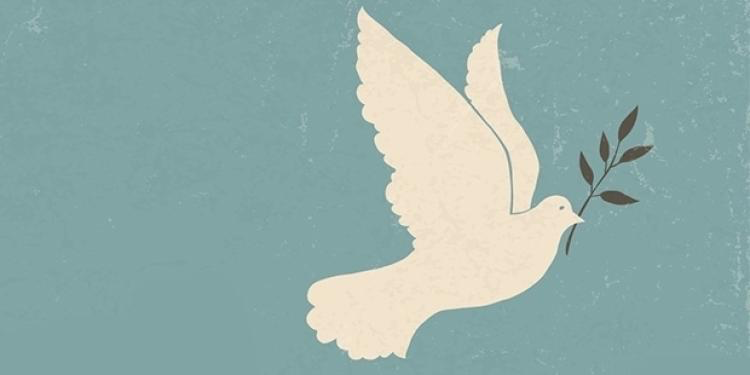
We stand alongside Alevi communities who live under constant threat and suffer discrimination in Turkey. As defenders and producers of peace, equality, democratic life, and science to protect well-being worldwide, we are also following the developments in Syria with great concern. This concern stems from the fact that, since the start of the conflict in Syria in 2011, the crimes committed against Alevis have been among the most invisible of all the serious human rights violations committed against all other peoples. This dangerous silence all parts of the world regarding what is happening in Syria is greatly increasing the anxiety of the Alevi community in Turkey and seriously undermining their security.
We find it completely implausible that a liberal and democratic political structure has been established in Syria, as claimed by the mainstream media. We see the truth as different from the discourse of the powers that be and is much more alarming.
In recent months, as recorded in the August 11th 2025 report of the UN Human Rights Council (A/HRC/59/CRP.4), widespread and systematic human rights violations have occurred in Syria's coastal and western central regions, particularly in areas with large Alevi communities. The report states that these violations against civilians were committed under the orders of the current interim government (https://www.ohchr.org/sites/default/files/documents/hrbodies/hrcouncil/s...).
These violations include acts that could be considered war crimes under international humanitarian law, such as intentional killing, torture, abduction, extrajudicial execution, religious/sectarian-based degradation, displaying corpses, looting, burning of property and agricultural land, and attacks on health facilities.
During the massacres targeting Alawites in March 2025, approximately 1,400 Alawites were killed, the majority of whom were civilians, and approximately 100 of whom were women. These attacks, which took place in just a few days, are etched in memory for their inhumane methods, including mass executions, dismemberment of bodies, and their display on social media in settlements such as Banyas, al-Muhtariya, and al-Haffa.
The UN report emphasises that there is no evidence that the interim government planned these violations as part of a “state policy,” but that some security units under the government's control and civilians close to them committed these crimes and that the government failed to fulfil its obligation to prevent and protect. However, information from the field indicates that the number of people killed or abducted is much higher and points to the responsibility of the interim government HTS forces for these massacres.
For instance, according to the March 23rd, 2025 report of the “Human Rights and Humanitarian Follow-up Committee (Syria)”, more than 2,200 Alawite civilians were killed during the period of March 7-9th, when mass killings intensified:
“Twenty-five massacres took place within the first three days, and these events were documented. In addition, 811 videos were filmed and the names of 2,246 victims were verified. Most of the victims were young, but there were also elderly people, children and women. All of them were targeted solely because they belonged to the Alawite sect. Forty-two people from other sects were also killed because they showed sympathy for these civilians and tried to protect them.” (Human Rights and Humanitarian Follow-up Committee (Syria), Who sows hatred, reaps mass murder. Genocide on the Syrian coast - Preliminary report, 23 March 2025. https://fhmsihr.org/eng/wp-content/uploads/sites/2/2025/03/Who_sows_hatr...)
The situation of Alawites is even more specialised and sensitive in the current climate of political instability, terrorism and violence. In a climate of political pressure, sectarianism and fear, we see that the community has limited channels to openly discuss the attacks against it. Furthermore, there is a loud rhetoric that aims at attributing the old regime's record of violence to this community. Alongside overt massacres, there is also a policy of extermination carried out through covert methods over time: condemning people to starvation and destitution by leaving them unemployed and without income, forced displacement, burning of agricultural land and forests, abductions, torture, extrajudicial killings, and attacks on sacred sites are all part of these policies.
In addition to all this, we strongly condemn the pressure and threats against our colleagues and bring them to the attention of the entire international academic community. It is alarming to see that scientists are once again being targeted. We are deeply concerned about the situation of Dr Racha el-Ali, a member of Homs University who was abducted months ago and has not been heard from since, and we demand that her safety be ensured immediately.
Furthermore, Dr. Hassan Ibrahim, a chemist and prominent figure in the scientific community, was abducted after leaving his workplace in January 2025 and was found five days later in the countryside of Damascus, shot in the head.
Dr Zahra Hemsiya, an exemplary figure in the field of microbiology who made significant contributions, particularly in the areas of antibiotic resistance and public health, was killed during an armed raid on her home in Damascus in December 2024. (Syrian Alawite Genocide File, Ehlen, https://ehlendergisi.com/index.php/2025/07/25/suriyede-alevi-soykirimi-d...).
These cases are concrete evidence that academic freedom and freedom of thought and expression are also being targeted in Syria, and we will continue to monitor these massacres against our colleagues.
We call upon the international community to contribute to the creation of a political atmosphere in which the voice and demands of the Alawite people, who are under heavy attack alongside the new regime in Syria, can be heard, and to the establishment of a genuine democracy and freedom environment based on fundamental rights and freedoms, where all peoples in Syria enjoy equal rights.
Adnan Şahin, Finance; Ahmet Bülent Özer, Economics; Albert Ali Salah, Computer Engineering; Ali Çeliksöz, Microbiology-Parasitology; Ali Haydar Konca, Law; Alpar Sevgen, Physics; Alper Açık, Psychology; Aslı Kayhan, Sociology; Aslı Odman, Social Sciences; Aslı Takanay, Translation Studies; Aslı Telli, Media and Communication Studies; Atilla Göktürk, Public Administration; Aydın Gelmez, Philosophy; Aydın Örnek, Economics; Aydoğan Kars, Islamic Studies; Ayfer Karakaya-Stump, History; Ayhan Yalçınkaya, Political Science; Ayşe Gözen, Economics; Ayşe Gül Yılgör, Business Administration; Ayşe Serdar, Sociology; Barış Ünlü, Sosyoloji; Barış Yapışkan, Physics; Başak Demir, Sociology; Bediz Yılmaz, Sociology, Agriculture; Bedriye Poyraz, Sociology of Communication; Beyza Üstün, Environmental Technology, Political Echology; Birgül Kutan, Social Sciences; Can Candan, Film and Media Studies; Celil Kaya, International Relations; Cem Özatalay, Sociology; Cem Terzi, General Surgery; Cemre Okumuş, Film Studies; Cengiz Arın, Political Science; Cihan Ziya Tuğal, Sociology; Demet Bolat, Sociology; Deniz Mardin, Public Health; Deniz Yonucu, Sociology; Derya Keskin, Sociology of Labour; Didem Dayı, Visual Communication Design; Dilşa Deniz, Anthropology; E. Ahmet Tonak, Economics; Ece Algan, Communication Studies; Ecehan Balta, Political Science; Elif Sandal Önal, Political Science, Social Psychology; Emrah Günok, Philosophy; Engin Karaman, Data Science; Eren Paydaş, Law; Ergün Özgür, Migration and Refugee Studies; Erkan Muniroğlu, Finance; Esin Gülsen, Political Science; Esra Ergüzeloğlu, Public Administration; Esra Mungan, Psychology; Eylem Çamuroğlu Çiğ, Media and Communication Studies; Fatma Gök, Educational Sciences; Feryal Saygılıgil, Sociology; Fikret Başkaya, Economics; Fırat Karçal, Social Service; Gençay Gürsoy, Neurology; Gülhan Türkay, Veterinary Medicine; Hacer Ansel, Science, Technology, and Society; Hakan Altun, Theatre; Hakan Gürvit, Neurology; Hakan Mertcan, Law; Halil İbrahim Yenigün, Political Science; Hasan Şahintürk, Theatre; Haydar Durak, Pathology; Heysem Kaya, Computer Science; Işıl Ünal, Educational Sciences; İlker Cörüt, Nationalism Studies; İsmail Kaplan, Pedagogy; Kenan Engin, Agriculture, Forestry, and Fisheries; Koray Sakarya, Environmental Sciences; Kuban Altınel, Industrial Engineering; Kumru Toktamış, Political Sociology; Kuvvet Lordoğlu, Labour Economics; Latife Akyüz, Sociology; Leyla Şimşek-Rathke, Sociology; Lütfiye Bozdağ, Fine Arts; Mahmut Ağbaht, Linguistics; Mehmet Rauf Kesici, Social Policy and Labour Economics; Mehmet Türkay, Economics; Mehmet Uğur, Economics; Mehmet Zencir, Public Health; Mehtap Tosun, Sociology; Melahat Kutun, Political Science; Melih Kırlıdoğ, Computer Engineering; Meral Camcı, Translation Studies; Meryem Koray, Labour Economics; Mesut Coşkun, Mathematics; Metin Altıok, Economics; Murat Büyükyılmaz, Economics and Communications; Murat Özyüksel, History; Mustafa Kemal Coşkun, Sociology; Mustafa Şener, Political Science; Muzaffer Kaya, Sociology; Nermin Biter, Biology; Neşe Özgen, Sociology; Nihan Aksakallı, Oral Pathology; Nil Mutluer, Comparative Gender Studies; Nilgün Erdem, Economics; Nilgün Toker, Philosophy; Nur Bekata Mardin, Management, Statistics; Nur Betül Çelik, Political Science; Onur Aytaç, Film and Media Studies; Onur Hamzaoğlu, Public Health; Orhan Kaya, Psychology; Öget Öktem Tanör, Neuropsychology; Özgür Müftüoğlu, Labour Economics and Social Policy; Özlem Altıok, International Studies, Woman and Gender Studies; Özlem Köseoğlu Örnek, Public Health Nursing; Özlem Özkan, Public Health; Ramazan Kurt, Philosophy; Rana Gürbüz, Economics; Rezan Tuncay, Neurology; Rıfat Okçabol, Educational Sciences; Salih Can Açıksöz, Anthropology; Savaş Ergül, Philosophy; Seçil Dağtaş, Anthropology; Seçkin Özsoy, Educational Sciences; Selim Çakmaklı, Economics; Selim Eskiizmirliler, Neuroscience; Selim Temo, Literature; Sema Bayraktar, Banking and Finance; Serdar Başçetin, Women Studies and Gender; Sevil Çakır, Sociology; Sevilay Çelenk, Communications; Sibel Özbudun, Social Cultural Anthropology; Sinan Araman, Economics; Suzan Yazıcı, Gerontology; Şahika Yüksel, Mental Health; Şahin Kapıkıran, Psychological Counseling; Şebnem Korur Fincancı, Forensic Medicine; Şebnem Oğuz, Political Science; Tahsin Yeşildere, Veterinary Medicine; Taner Özbenli, Neurology; Taylan Akgül, Economics; Taylan Koç, Political Science; Tezcan Durna, Communication; Tolga Tören, Economics; Tuna Altınel, Mathematics; Uğur Kutay, Cinema; Ulaş Bayraktar, City and Local Governments; Ülkü Güney, Sociology; Ümit Biçer, Forensic Medicine; Veli Mert, Fine Arts; Yasemin Acar, Social Psychology; Yasemin Özgün, Political Science; Yücel Demirer, Political Science; Yüksel Akkaya, Social Policy; Zafer Yörük, Political Science; Zelal Beyaz Karçal, Economics; Zeynep Kadirbeyoğlu, Political Science; Zeynep Oktay, Turkish Language and Literature; Zeynep Tül Akbal Süalp, Sociology and Cinema; Zeynep Türkyılmaz, History.
